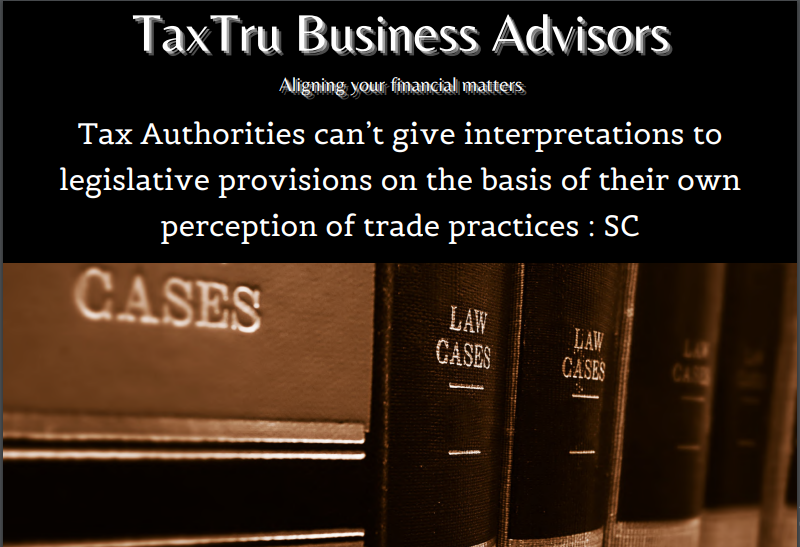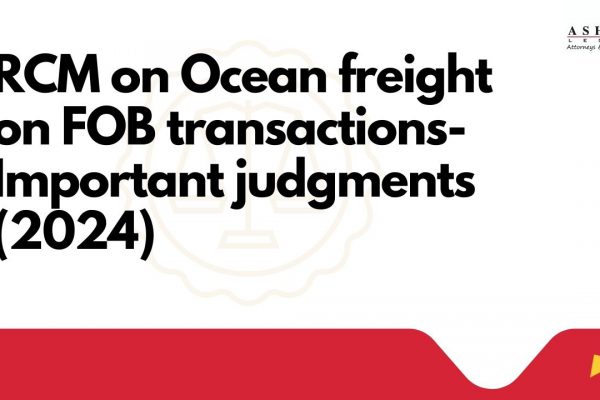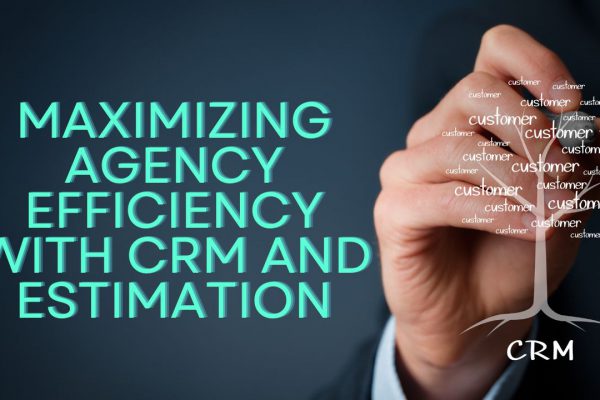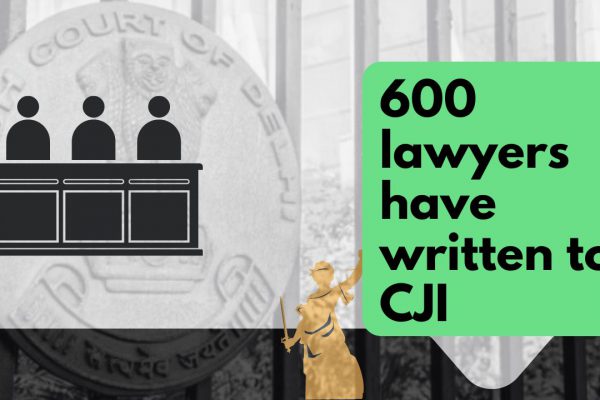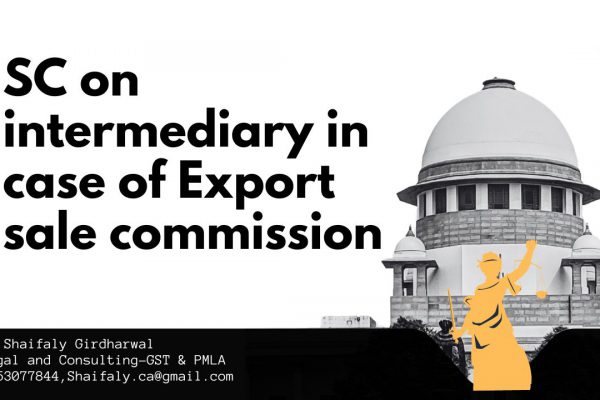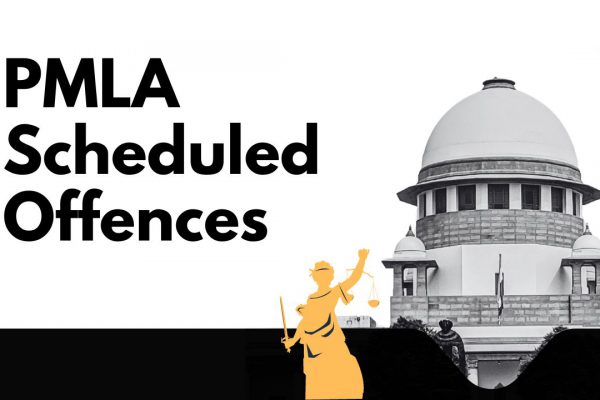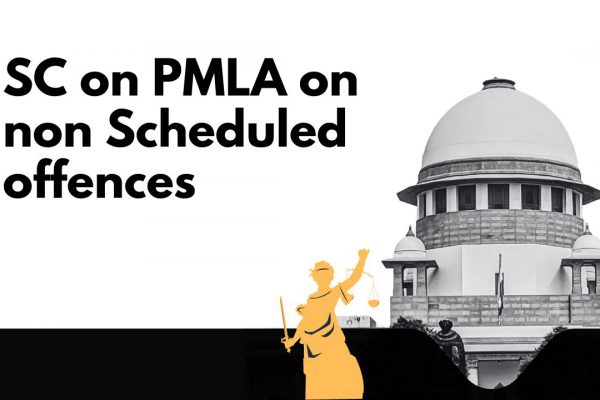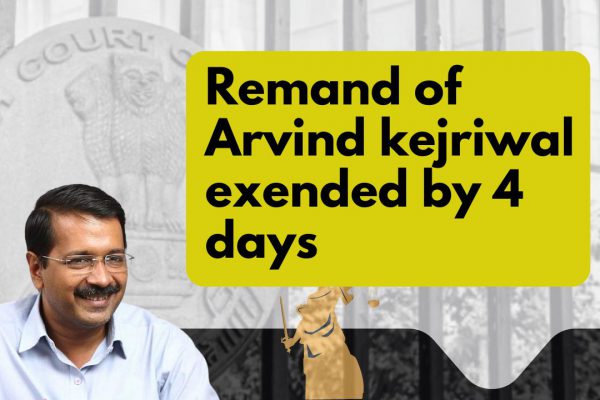Tax Authorities can’t give interpretations to legislative provisions on the basis of their own perception of trade practices: SC
Tax Authorities can’t give interpretations to legislative provisions on the basis of their own perception of trade practices: SC
- The Supreme court held as illegal the circulars issued by the Rajasthan Commercial Tax department, which stated that goods imported from other states will be regarded as ‘ constructively delivered’ after a reasonable period of lying with the transporter in the imported state.
- Court held that there is no concept of ‘ constructive delivery ‘ of goods under the Central Sales Tax Act, 1956, and interstate movement of goods will terminate only when physical delivery is taken.
Synopsis of Judgment
a. A common question of law was arising out of Sections 3 and 6 of the Central Sales Tax Act, 1956, which was operational at the material point of time. (bare text of the provisions is given at the end of this document)
b. As per this provision of Section 6, a subsequent sale during the course of interstate transit of goods will also be treated as an inter-state sale.
c. If the movement of the goods from one State to another terminates, the subsequent sales will be treated as intra-State sales, and the benefit of the above subsection (2) of Section 6 will not be available in such cases.
d. The issue before the Court was whether when the inter-state movement will be treated as terminated – when the actual movement comes to an end or when the actual delivery is taken.
e. The Commercial Taxes Department of Rajasthan issued circulars in 1997 stating that if the goods are remaining with the transporter, without physical delivery after a reasonable time, the transit will be deemed to have come to an end. On this basis, the subsequent sales effected while such goods are lying with the transporter were not regarded as intra-state sales and were subjected to local sales tax.
f. In the instant case, the Commercial Tax officer in the respective orders treated retention of goods beyond 30 days in the transporters’ godown as the cut-off period.
g. After that date, the assessee was deemed to have had taken constructive delivery of goods and sale beyond that period within the State of Rajasthan was held to be local sales and subjected to sales tax under the State Law.
h. The Rajasthan HC disagreed with this approach of the department. The HC held that the department had no authority to issue such circulars, prescribing cut-off for delivery.
i. This led the department to come in appeal before the SC.
j. Section 3 of the CST -which defines ‘interstate’ sale – specifies that movement of the goods would be deemed to commence at the time when goods are delivered to a carrier and shall terminate at the time when delivery is taken from such carrier. The said provision does not qualify the term ‘delivery’ with any time-frame within which such delivery shall have to take place.
k. The SC observed that “In such circumstances fixing of time-frame by order of the Tax Administration of the State in our opinion would be impermissible”.
l. The department placed reliance on a judgment of the Delhi High Court in the case of Arjan Dass Gupta and Brothers vs. Commissioner of Sales Tax, Delhi Administration.
m. In that case, the HC observed that if taking delivery is the test of termination of movement and not the landing of the goods, it will lead to “anomalous results”.
n. The SC observed that the reasoning was not in consonance with Section 3 of the Act.
o. The court observed that
‘In our opinion, however, such construction would not be proper to interpret the provisions of Section 3 of the 1956 Act. A legal fiction is created in first explanation to that Section. That fiction is that the movement of goods, from one State to another shall terminate, where the good has been delivered to a carrier for transmission, at the time of when delivery is taken from such carrier. There is no concept of constructive delivery either express or implied in the said provision in an importing State.”
p. The SC categorically held that Arjan Dass Gupta did not lay down the “correct proposition of law”.
q. Tax administration authorities cannot give their own interpretation of statutory provisions based on the perception of trade practice.
r. The top court stressed that there was no scope for such an incorporating a condition to qualify the expression “delivery”.
s. On a plain reading of the statute, the movement of the goods, for the purposes of clause (b) of Section 3 of the 1956 Act would terminate only when delivery is taken, having regard to the first explanation to that Section.
t. There is no scope of incorporating any further word to qualify the nature and scope of the expression “delivery” within the said section. The legislature has eschewed from giving the said word an expansive meaning”.
u. The judgment authored by Justice Aniruddha Bose held that it was not open to the tax authorities to give their own interpretation to legislative provisions on the basis of their own perception of trade practice.
v. “In the event, the authorities felt any assessee or dealer was taking unintended benefit under the aforesaid provisions of the 1956 Act, then the proper course would be a legislative amendment.
w. The Tax Administration Authorities cannot give their own interpretation to legislative provisions on the basis of their own perception of trade practice.
x. This administrative exercise, in effect, would result in supplying words to legislative provisions, as if to cure omissions of the legislature”.
Related Topic:
Patna HC in the case of Pankaj Sharma V/s UOI
Other Points
The attitude of Judges in interpreting the tax statutes (in early stage)
a) Just as the hands of the executive are tied in the techniques available for enacting and administering interpretations of revenue legislation by the attitudes that will be taken by the judges who will and must settle any dispute, so the judges themselves are limited in their approaches by the decisions of their predecessors.
b) To understand recent attitudes taken by the judiciary, we must note how these approaches evolved.
c) Judges had major opportunities to formulate approaches to the interpretation of tax legislation long before they had to tackle modern revenue statutes. The context of their earlier exercises, leaving behind the high dramas of the seventeenth century, came in the guise of “impositions on proceedings at law,” 27 namely the stamp duties. Enforcement of this was easy. Documents that sought to be, but were not, stamped, could not be used in any judicial proceeding And enforcement, therefore, required a judicial determination on the stamp laws.
d) It is worth remembering that at that time stamp duties were only a small part of the state’s revenue. The main taxes of the time rarely came before the courts. Indeed, the land tax, potentially the most complex, could not come before the courts except in the shape of action for non-payment.” So the judges’ only contact with the tax laws was with the stamp duties and with penalty cases.
e) On this basis, one might anticipate that the laws would receive the same judicial intolerance as that accorded to penal statutes.
f) This element was present at the time income tax was first introduced, but so also were some more surprising attitudes.
g) The principle of strict interpretation was enunciated by Lord Ellenborough C.J. in Warrington v. Furbor in 1807:
“Where the subject is to be charged with a duty, the cases in which it is to be attached ought to be fairly marked out.”
h) This concern with the literal approach could be taken to extremes. In that case, a document was challenged because too much stamp duty had been paid on it, and it was argued that it did not, therefore, bear the stamp required by law. This argument was accepted by the court, which based its judgment on the express words of the statute.
i) Against this, the editor of the 1809 edition of Blackstone was prepared to comment that “it is considered a rule of construction of revenue acts, in ambiguous cases, to lean in favor of the revenue.
j) This rule is agreeable to good policy and the public interests, but, beyond that, which may be regarded as established law, no one can ever be said to have an undue advantage in our courts.”
k) This concern with the object of the statutes was also reflected in the judgment of Garrow B. in Att.-Gen. v. Coote (1817), one of the earliest reported income tax cases. “In the exigencies of this country, this tax was imposed.
….‘and its object was to relieve the subject by throwing the great weight of it on those who are most capable of sustaining it.”
This, he felt, was a very wholesome object, and justified the anti-taxpayer attitude he adopted in interpreting the section in question.
Interpretation of Section
a) The rule of construction of a charging section is that before taxing any person, it must be shown that he falls within the ambit of the charging section by clear words used in the section.
b) No one can be taxed by implication. A charging section has to be construed strictly. If a person has not been brought within the ambit of the charging section by clear words, he cannot be taxed at all. The Supreme Court in CWT vs. Ellis Bridge Gymkhana and Others (1998) 229 ITR 1 held:
“The Legislature deliberately excluded a firm or an association of persons from the charge of wealth-tax and the word “individual” in the charging section cannot be stretched to include entities that had been deliberately left out of the charge.’
c) The charging section which fixes the liability is strictly construed but that rule of strict construction is not extended to the machinery provisions which are construed like any other statute. The machinery provisions must, no doubt, be so construed as would effectuate the object and purpose of the statute and not defeat the same. {See Whitney vs. Commissioner of Inland Revenue (1926) AC 37, Commissioner of Income-tax vs. Mahaliram Ramjidas (1940) 8-ITR-442 (PC), India United Mills Ltd. vs. Commissioner of Excess Profits Tax, Bombay (1955) 27-ITR-20 (SC); and Gursahai Saigal vs. Commissioner of Income-tax, Punjab (1963) 48-ITR-1 (SC).}
d) The Apex Court in C.I.T. vs. Calcutta Knitwears (2014) 362-ITR-673 (S.C.) stated: “The courts while interpreting the provisions of fiscal legislation, should neither add nor subtract a word from the provisions. The foremost principle of interpretation of fiscal statutes in every system of interpretation is the rule of strict interpretation which provides that where the words of the statute are absolutely clear and unambiguous, recourse cannot be had to the principles of interpretation other than the literal rule”.
e) It also observed: “Hardship or inconvenience cannot alter the meaning of the language employed by the Legislature if such meaning is clear and apparent. Hence, a departure from the literal rule should only be in very rare cases, and ordinarily, there should be judicial restraint to do so” and: It is the duty of the court while interpreting machinery provisions of a taxing statute to give effect to its manifest purpose.
f) Wherever the intention to impose liability is clear, the courts ought not to be hesitant in espousing a common-sense interpretation of the machinery provisions so that the charge does not fail. The machinery provisions must, no doubt, be so construed as would effectuate the object and purpose of the statute and not defeat it.
g) In a taxing Act, one has to look merely at what is clearly said. There is no room for any intendment. There is no equity about a tax. There is no presumption as to a tax. Nothing is to be read in, nothing is to be implied. One can look fairly at the language used.” This view has been reiterated by the Supreme Court time and again. In the State of Bombay vs. Automobile and Agricultural Industries Corporation (1961) 12 STC 122, the court said (page 125):
“But the courts in interpreting a taxing statute will not be justified in adding words thereto so as to make out some presumed object of the Legislature……. If the Legislature has failed to clarify its meaning by the use of appropriate language, the benefit thereof must go to the taxpayer. It is settled law that in case of doubt, that interpretation of a taxing statute which is beneficial to the taxpayer must be adopted.”
h) In Raja Jagdambika Pratap Narain Singh vs. C.B.D.T. (1975) 100-ITR-698,
Supreme Court held that
“Equity and income-tax have been described as strangers”
The Act, in the very nature of things, cannot be absolutely cast upon logic. It is to be read and understood according to its language.
i) If a plain reading of the language compels the court to adopt an approach different from that dictated by any rule of logic, the court may have to adopt it, vide Azam Jah Bahadur (H.H. Prince) vs. E.T.O. (1972) 83- ITR-82 (SC). Logic alone will not be determinative of a controversy arising from a taxing statute.
j) Equally, common sense is a stranger and an incompatible partner to the Income-tax Act. It does not concern itself with the principles of morality or ethics. It is concerned with the very limited question as to whether the amount brought to tax constitutes the income of the assessee.
k) It is equally settled law that if the language is plain and unambiguous, one can only look fairly at the language used and interpret it to give effect to the legislative intention. Nevertheless, tax laws have to be interpreted reasonably and in consonance with justice adopting a purposive approach.
l) The contextual meaning has to be ascertained and given effect to. A provision for deduction, exemption or relief should be construed reasonably and in favor of the assessee.
Our Views
In transit sales were always under the radar of the tax department, now SC has clearly stated that the top court stressed that there was no scope for such an incorporating a condition to qualify the expression “delivery”.
Words are to be given their direct and grammatical meaning. But in case there are any ambiguities then the help of interpretation is taken by understanding the context in which such words are used.
Such meaning is given which solves the purpose of the law and which seems to be the intention of the legislature.
The practical applicability of laws is different from drafting & enforcing the law. It is the role of the judiciary to interpret the laws made by the legislature. It is the function of the Judiciary to apply the law made by the legislature.
As the tax laws are interpreted strictly, the legislature must ensure that words used in the statute are clear and wide enough to cover all subjects which it intends to be taxed. Words and descriptions should be used with proper care and sophistication so as to avoid any ambiguity.
Section 3 of the Central Sales Tax Act, 1956
3. A sale or purchase of goods shall be deemed to take place in the course of inter-State trade or commerce if the sale or purchase-
(a) occasions the movement of goods from one State to another; or
(b) is effected by a transfer of documents of title to the goods during their movement from one State to another.
Explanation 1: Where goods are delivered to a carrier or other bailee for transmission, the movement of the goods shall, for the purposes of clause (b), be deemed to commence at the time of such delivery and terminate at the time when delivery is taken from such carrier or bailee.
Explanation 2: Where the movement of goods commences and terminates in the same State it shall not be deemed to be a movement of goods from one State to another by reason merely of the fact that in the course of such movement the goods pass through the territory of any other State.
Explanation 3.- Where the gas sold or purchased and transported through a common carrier pipeline or any other common transport or distribution system becomes co-mingled and fungible with other gas in the pipeline or system and such gas is introduced into the pipeline or system in one State and is taken out from the pipeline in another State, such sale or purchase of gas shall be deemed to be a movement of goods from one State to another.
Section 6 Central Sales Tax Act, 1956
6. (1) Subject to the other provisions contained in this Act, every dealer shall, with effect from such date as the Central Government may, by notification in the Official Gazette, appoint, not being earlier than thirty days from the date of such notification, be liable to pay tax under this Act on all sales of goods other than electrical energy effected by him in the course of inter-State trade or commerce during any year on and from the date so notified:
Provided that a dealer shall not be liable to pay tax under this Act on any sale of goods which, in accordance with the provisions of sub-section (3) of section 5, is a sale in the course of export of those goods out of the territory of India
(1A) A dealer shall be liable to pay tax under this Act on a sale of any goods effected by him in the course of inter-State trade or commerce notwithstanding that no tax would have been leviable (whether on the seller or the purchaser) under the sales tax law of the appropriate State if that sale had taken place inside that State.
(2) Notwithstanding anything contained in sub-section (1) or sub-section (1A), where a sale of any goods in the course of interState trade or commerce has either occasioned the movement of such goods from one State to another or has been affected by a transfer of documents of title to such goods during their movement from one State to another, any subsequent sale during such movement effected by a transfer of documents of title to such goods to a registered dealer if the goods are of the description referred to in sub-section (3) of section 8, shall be exempt from tax under this Act: Provided that no such subsequent sale shall be exempt from tax under this sub-section unless the dealer affecting the sale furnishes to the prescribed authority in the prescribed manner and within the prescribed time or within such further time as that authority may, for sufficient cause, permit—
(a) a certificate duly filled and signed by the registered dealer from whom the goods were purchased containing the prescribed particulars in a prescribed form obtained from the prescribed authority; and
(b) if the subsequent sale is made to a registered dealer, a declaration referred to in sub-section (4) of section 8 :
Provided further that it shall not be necessary to furnish the declaration referred to in clause (b) of the preceding proviso in respect of a subsequent sale of goods if,—
(a) the sale or purchase of such goods is, under the sales tax law of the appropriate State exempt from tax generally or is subject to tax generally at a rate which is lower than three percent or such reduced rate as may be notified by the Central Government, by notification in the Official Gazette, under sub-section (1) of section 8 (whether called a tax or fee or by any other name); and
(b) The dealer affecting such subsequent sale proves to the satisfaction of the authority referred to in the preceding proviso that such sale is of nature referred to in this sub-section.
(3) Notwithstanding anything contained in this Act, no tax under this Act shall be payable by any dealer in respect of the sale of any goods made by such dealer, in the course of inter-State trade or commerce, to any official, personnel, a consular or diplomatic agent of—
(i) Any foreign diplomatic mission or consulate in India; or
(ii) the United Nations or any other similar international body, entitled to privileges under any convention or agreement to which India is a party or under any law for the time being in force, if such official, personnel, consular or diplomatic agent, as the case may be, has purchased such goods for himself or for the purposes of such mission, consulate, United Nations or other body.
(4) The provisions of sub-section (3) shall not apply to the sale of goods made in the course of inter-State trade or commerce unless the dealer selling such goods furnishes to the prescribed authority a certificate in the prescribed manner on the prescribed form duly filled and signed by the official, personnel, consular or diplomatic agent, as the case may be.
Read the Copy:
If you already have a premium membership, Sign In.
 TaxTru Business Advisors
TaxTru Business Advisors
Consultants


